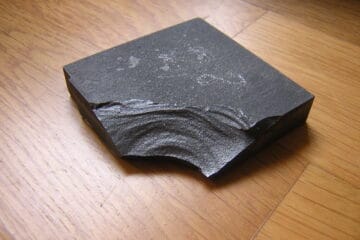What Vitamins Should Men be Taking at Different Points in Their Life?

Men have different nutritional needs than women and those nutritional needs change as they age. The right multivitamin for a 25 year old man is not the same as the right multivitamin for a 65 year old man.
Of course, the best way to get the nutrients you need at every stage of life is to eat a healthy, well-balanced diet, thereby negating the need for supplements. But most of us are constrained by time and other factors and forced to prioritize, in which case we opt for the quickest, most convenient way to fill our stomachs and move on.
That’s where multivitamins come in. While scientists debate the benefits of multivitamins for otherwise healthy individuals, there is plenty of proof that vitamin supplements can make up for nutrient shortfalls (1). Therefore, taking a multi every day, especially if your diet is less than perfect, is always a good idea.
The Right Multivitamins for Men in their 30s and 40s

The average American male has it within their grasp to eat a well-balanced, nutritious diet. Unfortunately, for whatever reason, most do not. This trend away from healthy eating starts in childhood (2) and by the time they are in their 30s many men are facing the side effects of nutrient shortfalls. Because of this, men in their 30s and 40s should consider taking a daily supplement that contains the following vitamins and minerals.
- Vitamin A – As we age our vision begins to suffer (3). This is true for both men and women. Vitamin A is important for maintaining eye health and also plays a role in supporting immune system function.
- Vitamins B6 and B12 – These vitamins support nervous system function, brain health, and the ability of your body to convert food into energy. Both B6 and B12 are also involved in red blood cell production. Many types of fast food lack these important vitamins.
- Vitamin C – Vitamin C is a natural antioxidant that helps fight the scourge of free radicals (4). Vitamin C also plays an important role in supporting the immune system and helping the body absorb iron.
- Vitamin D – Bone loss and poor bone health are major contributors to devastating fractures experienced by so many older men. But that poor bone health doesn’t suddenly begin when we turn 60 or 70. The process starts much earlier in life (5)(6). One way to prevent bone loss from gaining momentum is to start taking vitamin D in your 30s.
- Calcium – Men need calcium as well as vitamin D in order to maintain healthy bones as they age. But those thinking they’ll get their calcium and vitamin D from fast food should think again. Calcium is typically found in green leafy vegetables, milk, soy and some types of fish. Not pizza, fast food burgers or potato chips.
- Magnesium – Magnesium is one of the most important nutrients in the human body. It plays a central role in more than 300 biochemical processes. Magnesium deficiency is widespread (7) and can lead to problems with the nervous system, muscle functions, energy levels and more.
The bottom line is that many of the conditions that affect older men have their roots in nutrient deficiencies from their 30s and 40s. The multivitamin you take at that age then should be aimed at filling those potential nutrient gaps in order to prevent small problems that might later blossom into big ones.
The Right Multivitamins for Men in their 50s and older

Men often reach their 50s and beyond having spent decades eating a less than perfect diet. As a result they wind up suffering from various nutrient deficiencies they may not even be aware of. Those nutrient deficiencies may also be causing or contributing to various health problems.
Different older men will have different nutritional needs, but as a general rule men over 50 years of age should be taking a multivitamin/multimineral that contains all of the above listed nutrients (vitamins A, B, C, D, calcium and magnesium), plus as many of the following as possible:
- Zinc – Zinc is one of the most important nutrients for older men. For instance, zinc deficiency is one of the trademark characteristics of men with prostate cancer (8). Zinc also plays a critical role in maintaining testosterone levels, immune function, wound healing and more.
- Omega-3 fatty acids – Omega-3 fatty acids (9) play an important role in supporting eye, brain and heart health, all of which are crucial as men get older. These important nutrients, however, are not easy to come by as they are most often found in fatty fish such as salmon and sardines. If you’re not getting a lot of fish in your diet your multivitamin/multimineral supplement should include omega-3 fatty acids.
- Hyaluronic acid – A lot of things begin to break down as we age, with skin being perhaps the most noticeable. Skin loses its ability to retain moisture as we age and one reason (though not the only one) is a lack of hyaluronic acid (10). This obscure molecule has a unique ability to retain water, which is crucial for healthy skin. Taking supplemental hyaluronic acid can help counter skin degradation.
- Flavonoids – You won’t find flavonoids in many multivitamins but you should consider taking them anyway as a separate supplement. Flavonoids are phytonutrients (11)(12) commonly found in fresh fruit and veggies that have robust anti-inflammatory and antioxidant capabilities. Both of those are crucial in helping to stave off heart disease and other chronic conditions that afflict the elderly.
The Bottom Line

Many of the health problems men experience in old age have their roots in the dietary choices they make when they are in their 20s, 30s and 40s. One way to combat these poor dietary choices is to start taking a multivitamin/multimineral early on to fill nutrient gaps and prevent small problems that could later grow into serious ones. But make no mistake, while multivitamins may help counteract bad food choices, the best approach is to simply eat better.


